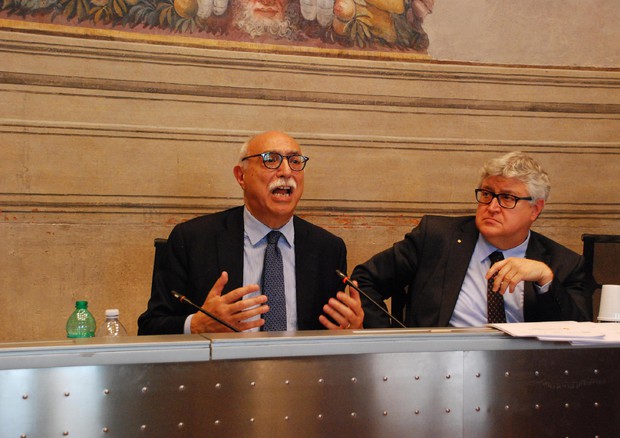University G7 looks at global citizens
'Possibly subject to economic interests but necessary' - Rugge
(ANSA) - Udine, June 8 - The link between global citizenship
and higher education will be the theme of one of the four
discussions at the G7 university event June 29-30.
The event in the northeastern Italian city of Udine is
organized by the Italian national university rectors conference
(CRUI) in collaboration with the Friuli Venezia Giulia regional
government, Fondazione Friuli, the University of Udine and the
education ministry.
Over 150 university rectors, professors and students from G7
nations will take part in the initiative, part of the Italian
'Conoscenze in Festa' knowledge festival.
"Citizenship has three basic dimensions: political, legal and
socio-cultural," the coordinator of the discussion and
University of Pavia rector Fabio Rugge wrote in a preparatory
document.
"However, given the changes that have occurred over the past
few decades, these three dimensions have taken on a
transnational and global breadth.
"And higher education, which played a decisive role in the
building of nation states over the course of the 19th and 20th
centuries, can today also be seen as the most effective factor
in development of global citizenship.
"Even from a historical standpoint, universities were created
and were present in much of Europe long before the formation of
nation states," Rugge stressed, "and they had a cosmopolitan
aspect, enjoying as they did privileges and immunity compared
with territorial powers."
The Pavia University rector said that university education
could currently contribute substantially to the building of a
global citizenship through "the international mobility of
students, and national and international networks of
qualification (QFS), the presence everywhere of a growing number
of programs and courses on globalization and
internationalization, and networks between universities."
The G7 discussion will focus on the positive and negative
aspects of this process.
"Among the negatives," Rugge pointed out, "is the risk of
'homologation', the fact that certain international structures
can be subject to economic interests, as well as the possibility
that a dominant country might exercise its power over others."
In conclusion, though "the theory and the practice of global
citizenship is still fragile and imprecise," the coordinator
said, "nothing similar to what we call global citizenship can
become a substantial characteristic of the institutional and
intellectual landscape of the planet without a decisive
contribution of the universities from around the entire world."
RIPRODUZIONE RISERVATA © Copyright ANSA







